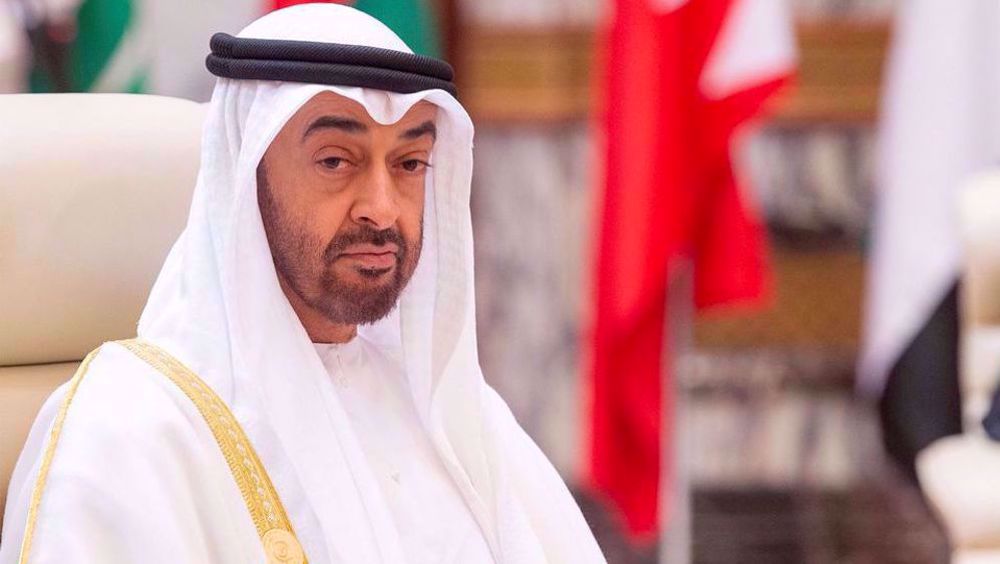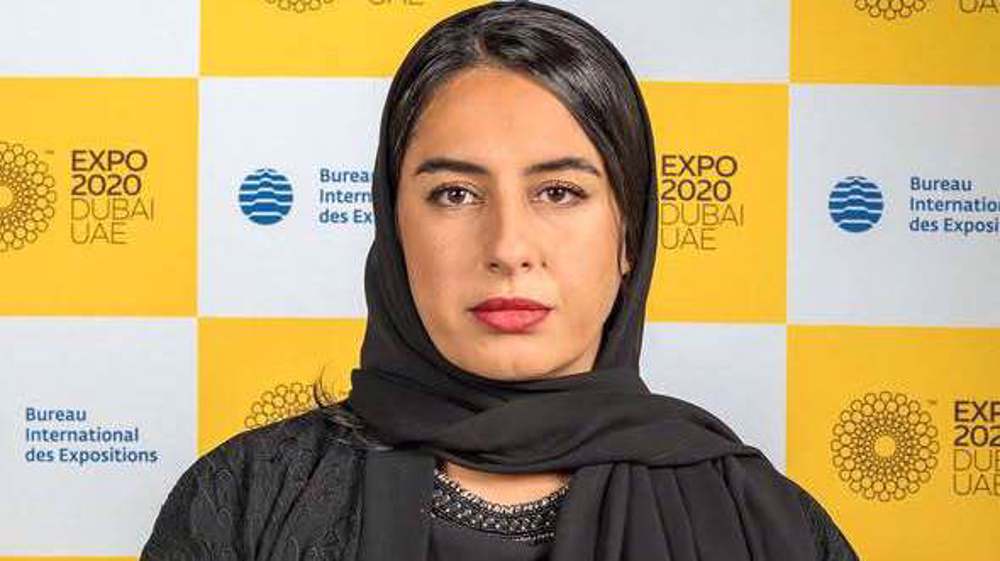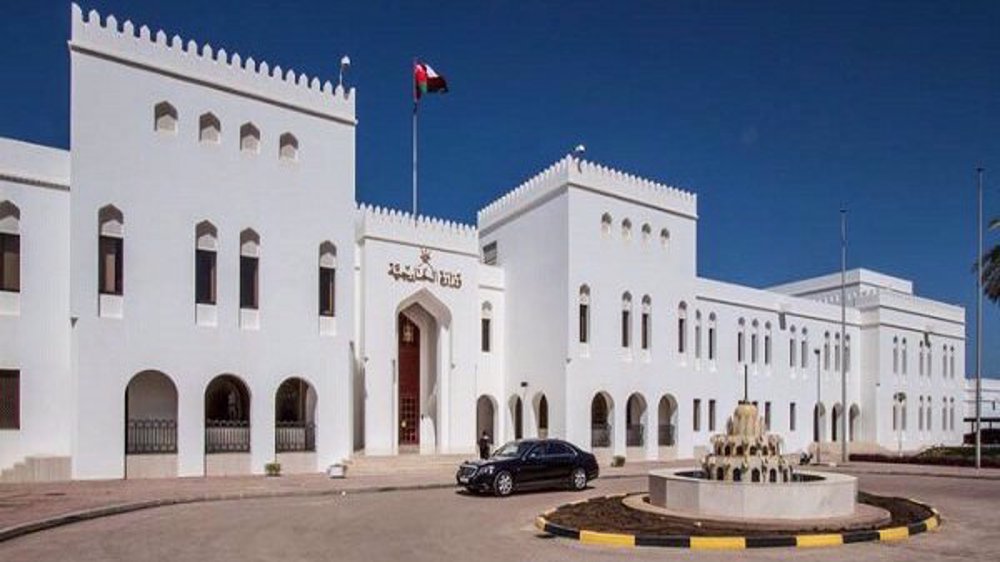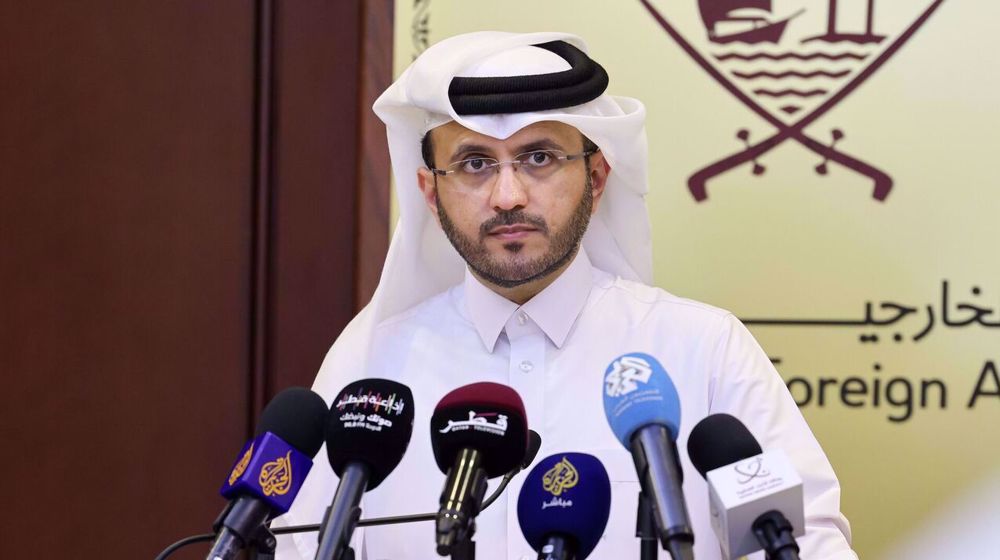Abu Dhabi crown prince has army of bots, trolls to promote him
The social media posts of Abu Dhabi's Crown Prince Mohammed bin Zayed Al Nahyan on his Twitter account are promoted by thousands of digital robots and fake individuals who support Israel and the widely-bashed normalization deal with the occupying Tel Aviv regime, revelations by a political expert shows.
Marc Owen Jones, an author and assistant professor of Middle East studies at the Hamad bin Khalifa University in Doha, Qatar, revealed in a thread of tweets that “91% of likes on UAE Crown Prince Mohammed Bin Zayed's tweets are created by at least 11,000 bots/fake accounts.”
In backing his argument, Jones pointed to a series of strange tweets about an Emirati plan to build a canal in Afghanistan, adding that such fake personalities as Kate Johnson and Jessica Anderson “were really amped about the project.”
“What was odd about Johnson and her ilk is how specific they were,” Jones said.
1/ 🧵Hope you're ready for an epic thread!
— Marc Owen Jones (@marcowenjones) January 19, 2022
It begins with a canal project in Afghanistan and a cafe worker called Sophia, but ends by explaining how 91% of likes on UAE Crown Prince @MohamedBinZayed's tweets are created by at least 11,000 bots/fake accounts #disinformation #UAE pic.twitter.com/4bGQ8XJOkq
“Another example is Lara Adams, who works in a Garden Center in Dubai, but for some reason uses a stock photo that is popular with dentists. There were dozens of accounts like this, united by their love of the UAE, canal projects in Afghanistan, and stock profile photos,” the political expert said in another tweet.
Jones also revealed that in his research he had come across accounts with identical bios and that they shared liking for Bin Zayed’s tweets as well as similar opinions about normalization deals.
“Things started getting really weird when I found two accounts with identical bios. What are the odds of two people who are phd holders in the management of UAE's nuclear power plant who are also 'Swiss addicts',” Jones said.
“So, I explored what these accounts were liking. All of them liked tweets by @MohamedBinZayed. Many of them boosted tweets critical of Al Jazeera, supportive of normalization with Israel, and against Qatar and Turkey. The majority though were promoting the UAE and MBZ,” he added.
8/ So I explored what these accounts were liking. All of them liked tweets by @MohamedBinZayed . Many of them boosted tweets critical of Al Jazeera, supportive of normalization with Israel, and against Qatar and Turkey. The majority though were promoting the UAE and MBZ pic.twitter.com/Qj7a8HwwEi
— Marc Owen Jones (@marcowenjones) January 19, 2022
Jones said his analysis about the number of likes under the Abu Dhabi crown prince’s tweets showed that, “50% of the accounts were created in just 25 days,” and that, “41% of the accounts who liked/RT'd MBZ's tweet were created in just one month, June 2020!”
“Based on this, a conservative estimate is that 91% of the likes of that MBZ tweet are generated by bots,” he underlined.
Jones said, “Even if an MBZ post has say, 4k likes and not 6k, a large number of them will be fake. This is probably to give the illusion of some level of authenticity.”
“To sum up. There are at least 11,000 fake accounts that post pro UAE/MBZ content or content reflecting UAE foreign policy, including support for Israel, and flak against al Jazeera, Turkey and Qatar. It's not clear who runs them, but their stance is consistent! It's also super creepy that bots are boosting other bots,” he concluded.
16/ To sum up. There are at least 11,000 fake accounts that post pro UAE/MBZ content or content reflecting UAE foreign policy, including support for Israel, and flak against al Jazeera, Turkey and Qatar. It's not clear who runs them, but their stance is consistent! It's also
— Marc Owen Jones (@marcowenjones) January 19, 2022
Four Arab countries – the UAE, Bahrain, Sudan and Morocco – agreed to normalize relations with Israel under US-brokered agreements in 2020, when former US President Donald Trump was in office.
Spearheaded by the UAE, the move has sparked widespread condemnations from the Palestinians as well as nations and human rights advocates across the world, especially within the Muslim world.
Palestinians have condemned the accords as a stab in their back and a direct affront to their cause to liberate their lands from Israeli occupation.
Kabul rocked by explosions as Pakistan launches airstrikes
Iran Armed Forces warn US of severe consequences for any aggression
VIDEO | Iran, US move ‘closer to agreement’ after ‘serious, longest’ round of talks: FM
Israeli army chief privately warns of cost of new war with Iran: Report
IRGC official: US buildup, psychological tactics aim to 'swallow Iran again'
Iran’s three-man team captures triple gold at UWW ranking series in Tirana
Iranian academic sentenced to 4 years in prison in France for supporting Palestine
VIDEO | Press TV's news headlines










 This makes it easy to access the Press TV website
This makes it easy to access the Press TV website